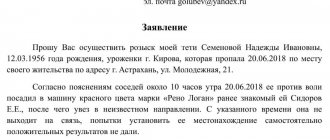One of the main conditions for the normal functioning of the economy is doing business within the framework of current legislation in the presence of healthy competition. All transactions must be concluded solely at the will of the parties. Forcing the conclusion of an agreement or refusal to sign it entails criminal liability for the perpetrator in accordance with Art. 179 of the Criminal Code of the Russian Federation.
Crime concept
Article 179 of the Criminal Code of the Russian Federation applies to economic and property relations between individuals and legal entities that have the right and capacity. Crime can be expressed in two unrelated actions:
- coercion to complete a transaction;
- coercion to refuse to imprison her.
You can learn more about the types of physical or mental coercion in criminal law, as well as about liability for these acts, on our website
Completing a transaction involves both the signing of an agreement by the parties and its actual execution. Thus, the attacker influences the will of the victim, as a result of which the latter commits actions that are contrary to his interests.
Coercion can be carried out in one or more ways, which are defined in Article 179 of the Criminal Code of the Russian Federation:
- Threat to cause harm to health of any severity, up to deprivation of life (if harm was actually caused, then other articles of the Criminal Code of the Russian Federation related to crimes against the person come into play). The threat may concern both the person making the decision to conclude and execute the transaction personally and his relatives.
- Threat of destruction, damage, or confiscation of the property of the injured party. Destruction is considered to be bringing property into a condition that does not allow it to be used in the future (restoration work is impossible).
- Threat to disseminate information that could negatively affect the victim's personal life or economic interests.
The threat can be communicated to the injured party orally, in writing or through third parties. The method of transmission does not affect the admission of guilt of the attacker if the fact of conveying the threat to the victim has been proven.
What is a one-way transaction?
A unilateral transaction is an agreement in which only one party participates. That is, to complete this transaction, the will of one party is required.
Such agreements are regulated by paragraph 2 of Article 154, as well as Article 155 of the Civil Code of the Russian Federation. An example of a transaction is a will. Although there are other persons (participants) in this document, its conclusion requires the will of one testator. He must not give notice to potential heirs.
In civil transactions, unilateral transactions are less common than bilateral and multilateral transactions. What types of unilateral transactions are there, are there any nuances when concluding them and can they be declared invalid? View answer
A unilateral transaction will have legal consequences only when it is executed in accordance with all laws. The document must not violate legal norms.
A unilateral transaction does not always imply that one person expresses his will.
The will of one party, which can be represented by several persons, is assumed. However, multiple parties to a transaction are not always allowed. It all depends on the regulations of the specific agreement. For example, a will can only be made by one person.
A unilateral transaction involves the emergence of obligations only on the party that entered into the agreement. However, the exception again is a will. In this case, persons receiving an inheritance may be required to transfer part of the property to third parties. For example, an heir inherited a car. He will receive it only if he transfers a fixed amount to an elderly relative. The basis for the transfer of obligations in a unilateral transaction is paragraph 1 of Article 1137 of the Civil Code of the Russian Federation.
ATTENTION! Unilateral transaction and unilaterally binding transaction are different terms. In the second case, obligations arise not from the person who entered into the agreement, but from third parties. The main and main difference between unilateral transactions and multilateral ones is that in the first case only one party takes part.
IMPORTANT! The general provisions of law regarding obligations and contracts apply to unilateral transactions.
Corpus delicti
The crime is classified according to the following criteria:
- The presence of real intentions on the part of the guilty person to force the execution or refusal of the transaction in one or more ways. Thus, the transaction will be concluded not on the basis of the will and agreement of the parties, but under the influence of threats.
- The injured party must understand the threat posed by the perpetrator. The threat can be directed both towards the person making the decision on the transaction, and towards his relatives or friends. However, they may not have information about the existing threat.
A crime is considered committed upon receipt of threats from the attacker. It does not matter whether the deal was actually concluded under their influence or not. In this article we will tell you how to correctly write a statement about threats and insults. You can also make statements there. https://lexconsult.online/5662-algoritm-napisaniya-podachi-zayavleniya-ob-ugrozah-oskorbleniyah
A crime can only be committed with direct intent. Motives can be very different: obtaining economic benefits, satisfying personal interests, etc. They can be taken into account when sentencing and determining the punishment for the perpetrator.
The subject of a crime can be any person at least sixteen years of age.
Examples of one-sided transactions
You can understand what unilateral transactions are based on specific examples. The following cases have the characteristics of a unilateral transaction:
- Granting a power of attorney (Article 185 of the Civil Code of the Russian Federation).
- Issuing a check.
- Pass.
- Application of a person to leave the LLC.
- Refusal of property and rights transferred by inheritance (Article 157 of the Civil Code of the Russian Federation).
- Acceptance of inheritance (Article 1152 of the Civil Code of the Russian Federation).
- Directing the execution of payment to an absent creditor.
- Public statement on the appointment of a reward for the found property (Article 1055 of the Civil Code of the Russian Federation).
- Public statement about holding a competition (Article 1057 of the Civil Code of the Russian Federation).
As can be seen from the notes to the list, certain unilateral transactions are regulated not only by Article 155 of the Civil Code of the Russian Federation, but also by other regulations.
Are there any specific features for specifying unilateral transactions made by a commission agent?
The difference between coercion to complete a transaction and extortion.
The main difference between extortion and coercion to conclude a transaction is the different subject of the attack. In the case of extortion, they include money, personal property, securities and property rights.
The subject of coercion is the relationship between economic entities.
There are also the following differences:
Additional information
It is also important to distinguish extortion from other forms of illegal actions with other people’s property - arbitrariness, theft, embezzlement and robbery. All these crimes have a similar motive, but different methods of execution. In this article we will take a closer look at their differences.
- With coercion, the injured party also receives some result from the transaction, that is, the offender offers an equivalent. With extortion, a positive result is only possible for the attacker.
- An agreement that was signed under threats in accordance with Article 179 will be invalid, but not sham. If the transaction was concluded as a result of extortion, since the attacker had the goal of formalizing his act with an agreement, then the transaction will be imaginary.
- Under coercion, a transaction may be concluded on “enslaving” terms, that is, one of the parties is forced to sign an agreement, although its terms absolutely do not meet the economic interests of the victim.
Conditions for recognizing a unilateral transaction as valid
The transaction will be considered valid only if these conditions are met:
- All provisions of the agreement comply with the law.
- A unilateral transaction was concluded by a legally capable person.
- The document sets out a single will. The points of the agreement should not contradict each other.
- The agreement was concluded by voluntary expression of will. If pressure was exerted on the person, the unilateral transaction is considered void.
- If the form of the document is specified at the legislative level, it must be observed.
If these points are not observed, the unilateral transaction is considered invalid even if there is no addressee. Registration authorities simply will not register the agreement.
IMPORTANT! One of the essential conditions for concluding a unilateral transaction is the possibility of its implementation. If it is known that the provisions of the agreement cannot be fulfilled, it is recognized as not concluded.
An example from judicial practice
Citizen Ivanov needed to obtain borrowed funds. He reached an agreement with Sidorov, who agreed to transfer him the required amount of money on the basis of a loan agreement. The condition for the transfer of funds was the provision of property as collateral, the value of which is not less than the size of the loan. Ivanov did not personally own such property. He turned to his relative Petrov with a request to hand over his personal car as collateral. Sidorov refused to do this. Ivanov began to threaten Sidorov to damage the car, as well as his other valuable property. As a result of the consideration of the case in court, Ivanov was found guilty under Art. 179 UKRF, part 1, and sentenced to forced labor for a period of eighteen months.
An example of a statement of claim for compulsion to enter into a contract can be downloaded from the link below.
Ask questions in the comments to the article and get expert advice
Controversial issues
There is a controversial point that applies specifically to a unilateral transaction, and not to contracts: whether it will be legal to cancel a transaction if interested parties have already learned about its provisions. For example, an organization submitted an announcement to the media about holding a competition. Interested parties (addressees) read the message, but the competition had to be cancelled. Legislators believe that a transaction is recognized as irrevocable when the recipients have received the notification (saw the message). Instructions regarding the situation under consideration are contained in paragraph 1 of Article 188 of the Civil Code of the Russian Federation, in Article 371 of the Civil Code of the Russian Federation. If a contradiction arises that is not explained by law, a person has the right to act on the basis of established practice.
Commentary to Art. 179 Civil Code of the Russian Federation
1. The commented article combines five elements of invalid transactions, the common feature of which is a defect in the internal will of the persons who committed them. Moreover, in a transaction concluded thanks to a malicious agreement between a representative of one party and the other party, the will of the person (represented) to complete the transaction is completely absent, and in other cases, the parties to the transaction act under the influence of such external factors that exclude the free formation of their will to complete the transaction. What all these transactions have in common is that a defect in the will of one of the parties to the transaction arises under the influence of the other party or, at least, is used by it in its own interests.
Rules Art. 179 apply to transactions of both citizens and legal entities. In this regard, only the rules on enslaving transactions have a certain specificity, the application of which to transactions with different subject composition, in particular with the participation of entrepreneurs, has certain features.
These circumstances predetermined the classification of all transactions under consideration as voidable, as well as the application to them of the same legal consequences of their invalidity.
Finally, the point that unites the transactions under consideration is that often the actions of one of the parties to the transaction simultaneously constitute an administrative offense or even a criminal offense. In particular, the Criminal Code, along with the traditional elements of crimes providing for criminal liability for beatings (Article 116 of the Criminal Code), torture (Article 117 of the Criminal Code), threats to kill (Article 119 of the Criminal Code), causing grievous bodily harm (Article 111 of the Criminal Code), fraud (Article 159 of the Criminal Code), etc., established special liability for “coercion to complete a transaction or refusal to complete it under the threat of violence, destruction or damage to someone else’s property, as well as the dissemination of information that could cause significant harm to the rights and legitimate interests the victim or his relatives” (Article 179 of the Criminal Code).
Article 179 is relatively rarely used in practice, although transactions falling within its scope are concluded quite often. This is explained both by the difficulties in proving the grounds for recognizing these transactions as invalid, and by the fact that the rights of victims are often restored within the framework of criminal proceedings, which is simpler and more profitable for them.
Along with the general aspects, each of the compositions of the transactions under consideration has certain specifics.
2. Fraud means the intentional misleading of a participant in a transaction by his counterparty or another person directly interested in the transaction. If a transaction was made under the influence of deception committed by an outsider (for example, a person who simply wants to cause harm to one of its participants), in order to apply the consequences provided for in Art. 179, there is no reason and such a transaction can be qualified under Art. 178 Civil Code.
Deception may concern not only elements of the transaction itself, but also affect circumstances beyond its boundaries, in particular, relate to the motive of the transaction. It is only important that the deception concerns such essential points, under the influence of which the party entered into a transaction that would never have taken place if the person had a true understanding of reality.
The deception itself can be expressed both in the active actions of an unscrupulous participant (providing false information to the counterparty, submitting false documents, etc.), and in refraining from actions that he should have taken (deliberate silence about circumstances of significant importance, and etc.).
At the same time, it is necessary to distinguish from fraud, which entails the recognition of a transaction as invalid, such related cases as non-fulfillment or improper fulfillment of an obligation arising from the transaction. Thus, a seller who is aware of defects in the property he is alienating, but does not inform the buyer about them, will be responsible for improper execution of the purchase and sale agreement (Articles 475 - 476 of the Civil Code). On the contrary, if it is proven that the seller sold the thing, concealing the fact that it was stolen or subject to destruction, the transaction, at the request of the buyer, may be declared invalid as concluded under the influence of deception.
Cannot be considered fraud in the sense of Art. 179 and such actions of the counterparty as his refusal of promises that are not put into the form required by law (for example, the seller’s refusal of an oral promise to replace an item that did not suit the buyer in the absence of indications of this in the purchase and sale agreement), from promises that have no legal force (for example, refusal of a promise to marry) and promises to commit illegal actions (for example, refusal of a promise to provide illegal assistance in resolving an issue of interest to the counterparty).
3. Violence within the meaning of the commented article is considered to be physical influence both on the participant in the transaction and on his relatives and friends in order to force him to complete the transaction. Violence can be expressed in beatings, torture, bodily harm, forcible detention, etc. The object of violent actions can be not only the person (physical integrity) of the participant in the transaction or his relatives, but also property belonging to them (damage to a car, arson of a house, etc.).
The person committing these violent acts may be not only a party to the transaction or a person who has a direct interest in it, but also any person acting on their instructions or even on their own initiative, but in their interests. For example, violent actions against a debtor who was forced to sign a deal that was obviously unfavorable for him in order to pay off an existing debt are subject to Art. 179 regardless of who committed them. It is only important that the counterparty himself is aware of such actions and takes advantage of the helpless state of his counterparty.
4. In contrast to violence, a threat is an unlawful psychological influence on a party to a transaction in order to force it to complete a transaction under pain of using violence, causing mental suffering, disseminating defamatory information, etc. In order for a threat to discredit a transaction, it must meet the following criteria.
Firstly, the threat must be significant, i.e. consist in the possibility of causing harm to fairly significant values (life, health, personal and business reputation, etc.). Assessing the significance of the threat largely depends on the personal qualities of the victim, his attachments, values, etc.
Secondly, it is required that the threat be real, i.e. capable of actually being implemented. The reality of a threat is determined both by the degree of probability of its implementation (which, in turn, depends on the personality of the threat, the capabilities available to him, etc.), and the very possibility of its implementation (for example, a modern person can hardly be frightened by the threat of bewitching or conjuring spoil).
Thirdly, the threat can come not only from a party to a transaction or a beneficiary, but from any person. It is only necessary to prove that the party to the transaction knew that the will of the counterparty was formed not freely, but under the influence of this threat.
Fourth, it generally does not matter whether the threat concerns lawful or illegal actions. For example, a threat to report to the police about a crime committed by a counterparty discredits the transaction in the same way as a threat to commit criminal acts against him. In both cases, a person’s will for a transaction is formed under the influence of external factors and does not reflect the true will of this person.
An exception, however, is the case where the lawful actions that the counterparty threatens to take would lead to the same result as a transaction made under the influence of the threat. Thus, the threat to go to court with a demand to replace an item in which significant defects have been discovered does not in any way discredit the transaction to replace this item, made by the seller under the influence of this threat.
5. A malicious agreement between a representative of one party and the other party is understood as a deliberate conspiracy between a representative and a third party to the detriment of the interests of the represented person. In fact, this case is a special type of transaction made under the influence of deception. Instead of concluding a transaction that the represented person wanted to make, the representative, using the powers granted to him, enters into a conspiracy with a third party and makes a deal that is unfavorable for the represented person. At the same time, formally he does not go beyond the powers granted to him, due to which it is impossible to qualify the concluded transaction under Art. 174, nor under Art. 183 Civil Code.
An indispensable condition for recognizing such a transaction as invalid on the basis of Art. 179 is evidence of conspiracy between a representative and a third party. It is quite difficult to do this in practice, since the unprofitability of the transaction for the person being represented (inflated or undervalued price, unfavorable conditions, etc.) in itself can only serve as indirect evidence of the existence of this conspiracy. However, if there is evidence of a conspiracy, it does not matter whether the participants received any benefit from the transaction.
The transactions in question should be distinguished from transactions related to the represented person going beyond the powers granted to him (Article 183 of the Civil Code). Such transactions do not give rise to legal consequences for the represented person, unless he subsequently approves them.
6. Completion of a transaction due to a combination of difficult circumstances as a basis for declaring it invalid is characterized by the following features. First of all, the transaction must be concluded on conditions that are extremely unfavorable for the party in need. This means that the terms of the transaction must not only be unfavorable for one of its parties (which happens quite often), but must differ sharply from the usual terms of such transactions. In other words, the bondage of the transaction should be obvious and not require special proof.
Further, the victim must prove that he was forced to make an enslaving transaction for him under the influence of a combination of difficult circumstances for him. As a rule, only extraordinary events can be recognized as such circumstances (an urgent need for funds to pay for an operation and purchase medications, the need to compensate for harm caused, etc.). On the contrary, if an unprofitable transaction was made due to frivolity, inexperience, under the influence of passion, etc., in order to recognize it as invalid under Art. 179 no reason.
Finally, the other party to the transaction must be aware of the plight of their counterparty and consciously use this circumstance to their advantage. It does not matter whether the victim found himself in such a position due to circumstances dependent on the other party to the transaction, or whether this happened completely independently of him. It also does not matter whether the party to the transaction actively acts (i.e., offers to conclude an enslaving deal) or simply accepts the offer of its counterparty, who himself formulated the enslaving terms of the contract. Legally significant is only the knowledge of the party that the transaction is being made by the other party under force, under the influence of a combination of difficult circumstances.
Although in general the rules of Art. 179 on enslaving transactions are applicable to any civil transactions; their application to transactions of an entrepreneurial nature should be especially balanced. If desired, an element of bondage can be found in almost any transaction aimed at making a profit. However, losses caused by economic miscalculations and failed hopes of “hitting the jackpot” cannot be covered at the expense of other participants in the turnover with the help of references to the enslavement of transactions. Therefore, only those transactions involving entrepreneurs that are actually made under the influence of circumstances related to or at least close to force majeure can be recognized as enslaving.
7. The requirement to recognize the transaction as invalid on the basis of Art. 179 can only be declared by the victim himself, and if this is impossible (for example, in the event of his death or he is declared incompetent) - by his legal representative or other interested parties (for example, heirs).
However, based on the circumstances of the case (the irreversibility of the consequences of the execution of the transaction, the interests of the victim himself, etc.), the court may recognize the transaction as valid in whole or in part (Article 180 of the Civil Code).
8. As a general consequence of the invalidity of transactions of the group under consideration, the commented article establishes unilateral restitution, in which the injured party is returned by the other party everything received by it under the transaction (if it is impossible to return what was received in kind, its value in money is reimbursed), and what is received (due) by the injured party is returned to the income of the Russian Federation. According to the law, this consequence applies only if the transaction is at least partially executed. If the parties did not have time to begin executing the transaction, the matter is limited to declaring its invalidity.
In addition, the victim is compensated by the other party for real damage, the presence and amount of which must be proven by the victim.










